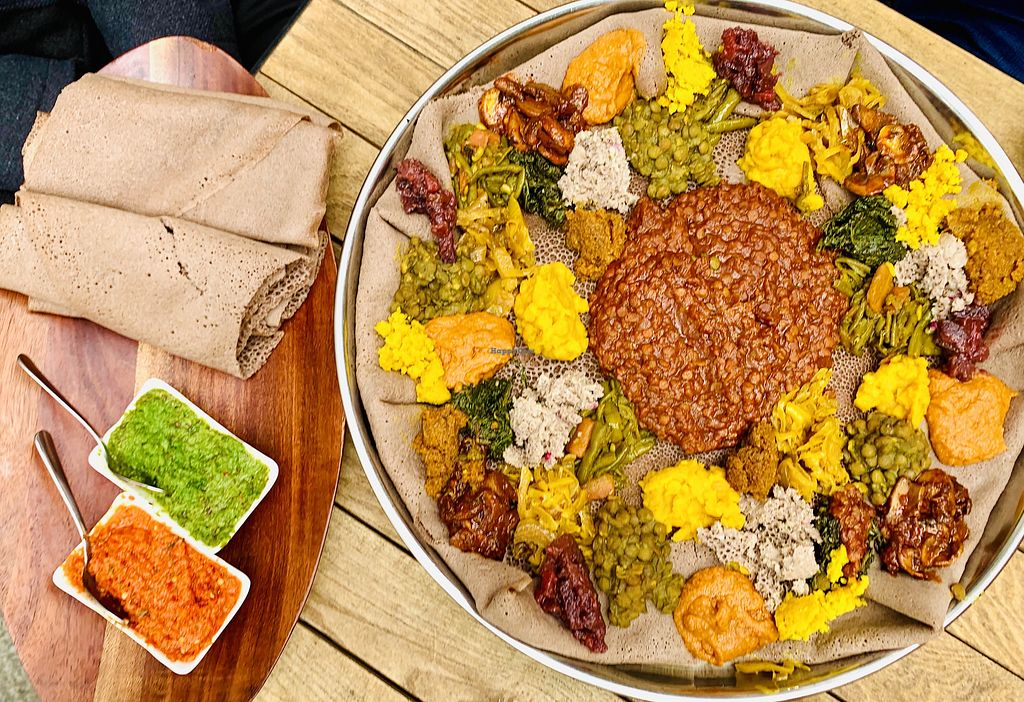Ethiopia is a country rich in culture and tradition, particularly when it comes to food and religion. One of the most unique aspects of Ethiopian cuisine is the abundance of vegan options available, which is largely due to the country’s Orthodox Christian traditions. In this article, we’ll explore the importance of eating vegan Ethiopian food and the role of fasting traditions in Ethiopia.
Ethiopian Orthodox Christians make up the majority of the country’s population and adhere to a strict fasting regimen that lasts almost half of the year. During these fasts, adherents abstain from all animal products, including meat, dairy, and eggs, in order to purify the body and soul. This means that veganism is not a new or trendy concept in Ethiopia – it has been a part of the country’s cultural and religious heritage for centuries.
As a result of this tradition, Ethiopian cuisine is well-known for its delicious and hearty vegan dishes. Injera, a spongy flatbread made from teff flour, is the staple of Ethiopian cuisine and is often used to scoop up various stews and curries, known as wats, that are packed with flavorful spices and vegetables. Some popular vegan wats include shiro, a spicy chickpea stew, and misir wat, a lentil stew seasoned with berbere, a traditional Ethiopian spice blend.


In addition to being a delicious culinary tradition, the veganism that is inherent in Ethiopian cuisine has several health benefits. A plant-based diet has been shown to reduce the risk of chronic diseases such as heart disease, diabetes, and certain types of cancer. Furthermore, veganism is better for the environment, as animal agriculture is a significant contributor to greenhouse gas emissions and deforestation.




In a professional context it often happens that private or corporate clients corder a publication to be made and presented with the actual content still not being ready. Think of a news blog that’s filled with content hourly on the day of going live. However, reviewers tend to be distracted by comprehensible content, say, a random text copied from a newspaper or the internet. There are many variations of passages of Lorem Ipsum available, but the majority have suffered alteration in some form, by injected humour, or randomised words which don’t look even slightly believable. If you are going to use a passage of Lorem Ipsum, you need to be sure there isn’t anything embarrassing hidden in the middle of text.
The fasting traditions in Ethiopia are also an important part of the country’s religious heritage. There are several fasts throughout the year, the longest of which is the Great Lent, which lasts for 55 days leading up to Easter. During this time, adherents abstain from all animal products and limit their intake of food in general. This period of sacrifice and self-reflection is seen as a way to draw closer to God and to focus on spiritual matters.
Fasting is also believed to have physical and mental health benefits. Studies have shown that intermittent fasting can improve blood sugar control, reduce inflammation, and even promote longevity. Furthermore, the discipline and self-control required during a fast can lead to a sense of mental clarity and inner peace.
In conclusion, the importance of eating vegan Ethiopian food and observing fasting traditions in Ethiopia cannot be overstated. These practices are deeply ingrained in the country’s culture and religion and have numerous health benefits for both the individual and the environment. So the next time you’re looking for a delicious and nutritious vegan meal, look no further than the colorful and flavorful dishes of Ethiopia.

